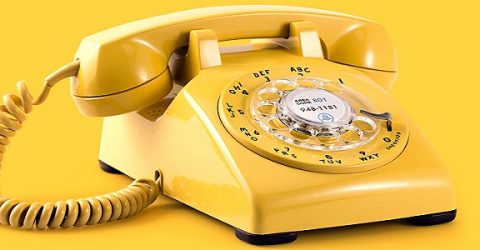Landlines may finally become a thing of the past
The end of landlines has been predicted for some time, but now their days may really be numbered

Over the years, the end of landlines has been predicted on many occasions.
Remember when mobile phones were going to render the landline obsolete? Or how Skype would finally consign a home phone number to the grave?
Neither of those proclamations has come true, and nor have predictions about video phones becoming ubiquitous.
Even in the post-lockdown age, many people still manually deactivate the camera in Teams meetings, or choose not to display webcam footage during Zoom calls.
Perhaps it’s a century of familiarity, but there’s something reassuring about being able to concentrate on a voice during a call.
Even so, a recent announcement by one of the UK’s major broadband providers may signal another nail in the coffin of the humble landline.
Fibre without the roughage
For many people, a landline is an irritation rendered necessary by the fact it has traditionally been used to pipe broadband services into our homes.
Even full fibre providers like Virgin Media have insisted on a landline as part of any internet service, often bundled into triple-play or quad-play packages alongside smartphones and TV.
However, last month, EE announced it was adopting standalone copper broadband technology.
Known by its snappier acronym of SOGEA, Single Order Generic Ethernet Access enables ISPs to supply a connection into your home without the voice component.
Phone calls can be provided through a Voice over IP solution, with handsets plugging into your router.
This technology has been under development by Openreach for several years, and it received its full commercial launch earlier this year.
As a result, broadband packages delivered over Openreach’s traditional copper phone network no longer have to piggyback on an analogue phone service.
And this could finally spell the end of landlines.
After all, EE is not the first company to offer SOGEA broadband. Sky already does so through its proprietary G.fast broadband service.
And there is a proposal to turn off the Public Switched Telephone Network by 2025, even though an estimated 15 million UK homes and businesses still have analogue voice services.
What are the drawbacks?
Although some consumers might regard this as being long overdue, the end of landlines could bring some unwelcome drawbacks.
For one thing, a traditional landline has traditionally been far more dependable than VoIP services.
You rarely experience buffering, sound quality degradation or dropped lines when talking over a landline.
Nor are your calls at the mercy of power outages, local network signal strength or the activities of other household members.
Signing up to a SOGEA service also means your existing landline number will be reallocated elsewhere – it can’t be transferred or retained.
And there remains residual suspicion about contacting companies or services which only list a mobile number, so this may not suit business owners or entrepreneurs.
Nonetheless, the provision of landline-free broadband gives consumers greater choice, and should provide a slight annual saving for people who have no need for a landline.






